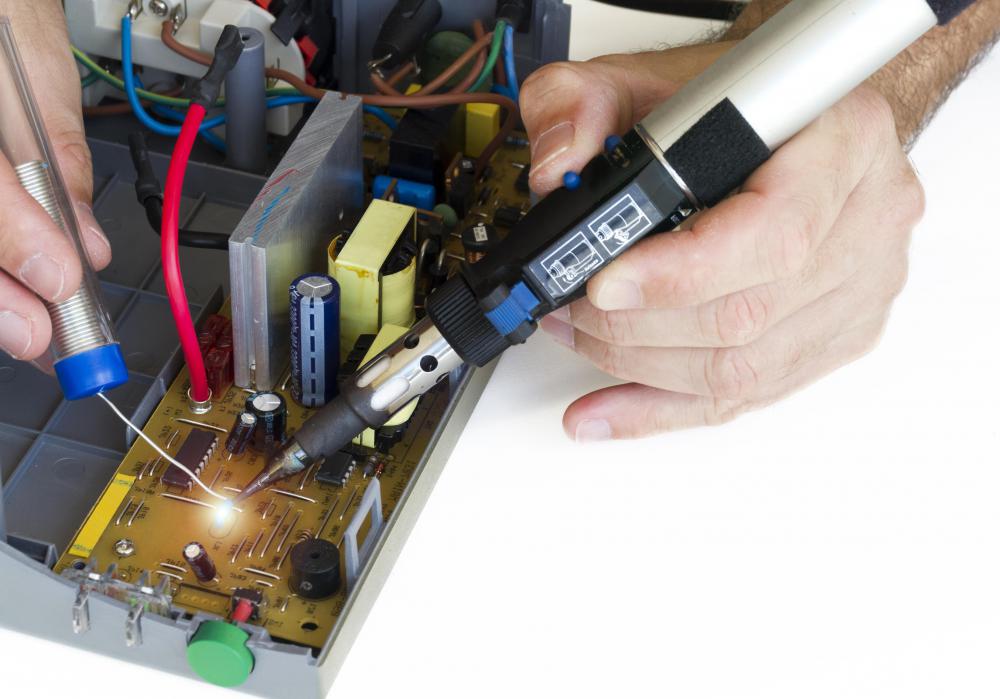At WiseGEEK, we're committed to delivering accurate, trustworthy information. Our expert-authored content is rigorously fact-checked and sourced from credible authorities. Discover how we uphold the highest standards in providing you with reliable knowledge.
What Does an Electrical Assembler Do?
An electrical assembler is a trained professional who installs electrical systems in various industrial applications. This may involve running wires, cutting the wire sheaths, soldering, working with small connectors and other small parts, and reading blueprints or schematics to create a working electrical system. An electrical assembler will need to complete a high school education or equivalent qualification, thereby developing basic math skills, reading skills, and communications skills. Most of the skills the assembler will need can be learned on the job, but it is advisable to attend a trade school or vocational school to earn the appropriate credentials and licenses.
The specific duties of an electrical assembler can vary depending on the industry in which that professional works. In some industries, such as the aerospace industry, it is likely that the electrical assembler will need to undergo rigorous on the job training to learn as much as possible about aircraft electrical systems. He or she may end up installing electronics on new aircraft, repairing or replacing electronic systems on old aircraft, or even installing electrical systems in missiles and other armaments. Many of the systems to be installed will work together, which means the assembler will need to have an understanding of how all the systems interact.

The electrical assembler will also need an in-depth understanding of how electricity works. The assembler will use various tools to test the conductivity of materials to troubleshoot electrical systems, and he or she will need to be able to interpret those tests to ensure the safety of all workers and the efficiency of the electrical system. Diagnostic tools are usually the first that an assembler will use on an already established system. Wires may need to be cut, soldering may need to be done, and other components may need to be installed or altered to make the system work.

In manufacturing, the electrical assembler may work on an assembly line or as part of an assembly team. Automobile manufacturers, for example, may hire several assemblers to handle the intricacies of electrical systems in automobiles or heavy machinery. Much of the work can be automated and completed by computer-operated machines, but electrical work may need the attention of a human assembler who can test the systems, install small components, run wires, and install components crucial to the operation of that system. The electrical assembler is likely to work as part of a team rather than independently in such settings.
AS FEATURED ON:
AS FEATURED ON:












Discuss this Article
Post your comments